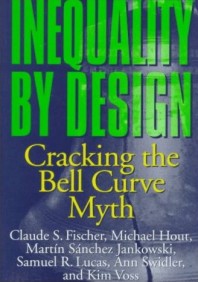
Berkeley’s Sociology Department is known around the world for its excellence in research and teaching. Our faculty advance cutting edge research and teach in most sociological specialities. Our PhDs are leaders in universities and research centers across the US and in many other countries. And our BAs populate the ranks of innumerable professions, bringing with them the skills and special perspective of Berkeley sociology.
We are proud to make these contributions from the world’s leading public university. At Berkeley, we combine intellectual rigor with a commitment to public service through our research, teaching, and service on campus and beyond.
For the past six decades, Berkeley’s Sociology Department has consistently been ranked among the world’s top sociology departments. Our graduate program is ranked #1 in the latest U.S. News and World Report, and our undergrad degree is currently the best in the US according to College Factual and features on Grad Reports’ Best College List 2020.

Prof. Einstein served graduate students as a model of prudence in remaining unfashionably true to the grand…
Inequality by Design: Cracking the Bell Curve Myth
As debate rages over the widening and destructive gap between the rich and the rest of Americans, Claude Fischer and his colleagues present a comprehensive new treatment of inequality in America. They challenge arguments that expanding inequality is the natural, perhaps necessary, accompaniment of economic growth. They refute the claims of the incendiary bestseller The Bell Curve (1994) through a clear, rigorous re-analysis of the very data its authors, Richard Herrnstein and Charles Murray, used to contend that inherited differences in intelligence...
Departmental Colloquium Series
John N. Robinson III, "Banking on Dystopia: the Story of Affordable Housing in Desperate Times"
Monday, April 15th, 2024 at 2:00 pm - 3:30 pm
Blumer Room - 402 Social Sciences Building & Via Zoom
Abstract:
Drawing from a current book project, this talk explores connections between two seemingly conflicting long-term trends. On the one hand, lower-income renters face an increasingly dire affordable housing crisis. On the other hand, big banks and corporations today are investing in affordable rental housing like never before. This book explores the factors shaping this jarring set of realities. And it discusses the complicated role of affordable housing investment in the past and present of American inequality. Tracing the evolution of this "industry" since the 1970s, the book argues that investments from big banks, investment firms, and other wealthy entities have become both a vital lifeline for and a daunting shackle on vulnerable populations.



